 The “anti-vaccine” movement is wreaking havoc in communities across the United States. It seems that rumors on parenting blogs have played a role in the recent uptick in refusals to vaccinate. Some blogs site religious beliefs. Other blogs tout the benefits of an organic lifestyle’s ability to overcome disease. Parents choosing not to vaccinate should question what will happen when their child gets sick and needs to take drugs in order to survive. There is never a 100% guarantee for anything. Risking the odds of contracting a serious, possibly fatal virus by refusing to get vaccinated seems absurd in today’s high tech information age. Vaccines weren’t always so readily available. In fact, it was only 70 years ago in the 1940s that children were dying from outbreaks of measles, mumps and hepatitis B. Due to the invention of 40 different vaccines by Dr. Maurice Hilleman and better hygiene practices, over 732,000 lives will have been saved just over the past two decades. Current generations including Millennials, Gen Xers and Gen Yers appear to take disease free communities and longer life spans for granted. If these same generations had talked to their grandparents rather than browse online blogs perhaps this movement could have been avoided. Instead, we see the rise of diseases like Chickenpox, Measles and Influenza that can have serious consequences to young children and grandchildren. Not only is it important to think of the safety of our loved ones, but we must think of our communities and society as whole. A concept known as “Herd Community” focuses on the impact to entire populations worldwide. Because travel is so readily available, disease can spread farther and faster than ever before making it even harder to contain to a small population. If the majority of people are vaccinated, the community as a whole is more protected against a disease; as it is harder for the virus to penetrate the population and even the non-vaccinated people of the “herd” have a smaller chance of getting sick. Unfortunately, due to the “antivaccine” movement in the US, diseases that were nearly extinct like Whooping Cough and Polio have begun to appear. The sad part is the unvaccinated children will suffer the most, as they will be the ones feeling the full impact. There are many rumors and untruths related to vaccinations. However, the current facts showing the evolution of vaccination, demonstrate that vaccinating children is safe and effective. For example, in 1999 Thimerosal, the substance associated with Autism, was voluntarily removed from vaccines by the pharmaceutical companies. Furthermore, the CDC (Center for Disease Control) has substantiated that once harmful chemicals used in the 70s have been removed and vaccines are safe and effective. Should the anti-vaccination trend become more prevalent all of the people we come in contact with on a daily basis including family and friends will be at risk. Therefore, I urge everyone, especially parents of young kids, to research the current facts and statistical importance of vaccinations and then get vaccinated! Here are some articles to help get you started: LA Times: Sunday, September 7, 2014 front page, A vaccination heretic, by Paloma Esquivel http://www.nbcnews.com/video/nightly-news/55944581/#55944581 http://vaccines.procon.org/#background http://www.health.harvard.edu/flu-resource-center/vaccines-and-your-health.htm http://www.usatoday.com/story/news/nation/2014/04/24/cdc-vaccine-benefits/8094789/
0 Comments
 You may be wondering, is it worth it to purchase solar panels or buy a house with existing solar panels? Have you ever thought about the environmental impact solar energy can cause? There are many advocates that would argue both sides of the coin on either question. However, I did some digging and found the following pros and cons that may sway you in one direction or the other. Environmental Pros:
Environmental Cons:
Homeownership Pros:
Homeownership Cons:
My findings are just a small snippet of information that can be found on the subject of solar panels. Also, everyone’s needs are unique. Be sure to do your own investigating before deciding if solar energy is right for you. Click the links below for more information: http://www.clean-energy-ideas.com/solar/solar-energy/pros-and-cons-of-solar-energy http://lifestylesolarinc.com/solar-power-pros-and-cons 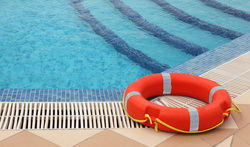 o Keep Kids away from pool drains, pipes and other openings where clothing, hair or toys can get caught and cause potential drowning.
o Ensure pool equipment is running smoothly and properly safeguarded to avoid electrocution.
o Do not leave pool toys of any kind around the perimeter of the pool as people can trip and hurt themselves.
o Ensure the pool is clear prior to jumping off the diving board and no holding people under water. o Supervise swimmers of any age, it is unsafe to swim alone.
o Pets are important to our families, ensure to keep them safe around the pool.
o Most importantly, have a fun and safe summer from Griff’s Electric! For more information on pool safety, see the following websites: http://www.adamshomes.com/blog-and-news/22-advice/499-top-10-pool-safety-tips http://www.healthychildren.org/English/safety-prevention/at-play/Pages/Swimming-Pool-Safety.aspx http://www.poolsafely.gov/pool-spa-safety/staying-safe-pools-spas/residential-swimming-pools/ Watch our video for more tips!  Renee cleaning the warehouse. Renee cleaning the warehouse. As you begin pondering when to start Spring Cleaning, do you ever wonder about the origin of this phrase? Long ago, before electricity and gas operating appliances, people used fire and oils to warm their houses. After a long, cold Fall and Winter season of burning oils and wood, a buildup of soot and sticky residue blanketed the inside of the houses. As the weather warmed, the cleaning would ensue and the darkened, dingy houses would be aired out and scrubbed from top to bottom, giving birth to the term “Spring Cleaning”. Although we have modern amenities, our houses and contents can still use some attention as Spring closes in upon us. Yes, we are thankful for how much easier are lives are, compared to our predecessors when it comes to keeping warm throughout the winter. However, there are some Spring Cleaning tips that can aid our appliances in running more efficiently, safely and save us money. · Clean air vents and replace air filters. · Dust light fixtures and ceiling fans. · Line dry clothes. · Rinse off screens. · Clean and defrost freezers. · Check electrical outlets for loose connections. · Consolidate cords and wires, check extension cords to ensure they are in good working condition. · Give kitchen appliances a break and BBQ. · Turn off the television and electronics and enjoy outdoor activities. Southern California Edison made a tweet about how to safely reset your circuit breakers after a power outage. Follow this tips to safely restore power. Check out Southern California Edison's twitter here: twitter.com/SCE
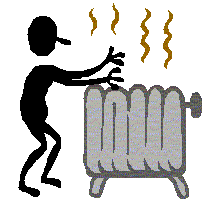 The Huffington Post recently put out a list of 10 ways to keep your home warm without turning up the heat. Here are some tricks that not everyone may think of:
Click here to read the full article at thehuffingtonpost.com 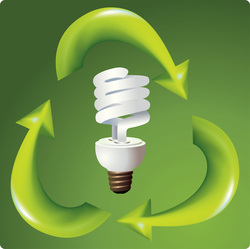 GoodHouseKeeping.com compiled a list of the top 10 tips for saving energy. All the tips are easy to do, and can greatly help the environment and lower your bills.
To see the full list and prices of products, click here to go to goodhousekeeping.com 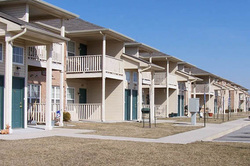 Energy Star has put together a list of 10 tips that can help those who rent an apartment, townhouse or home save money on their bills and help save energy.
Find even more tips on the Energy Star website here: http://www.energystar.gov/index.cfm?c=products.es_at_home_tips 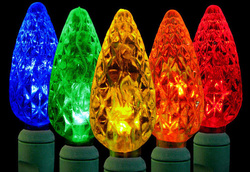 Colorful holiday lights adorning houses and trees is a tradition seen everywhere during the months of November and December. In recent years, these lights have began the transition to become fully LED. It is no secret that LED lights are much better for the environment, and you electric bill, than the old fashioned incandescent bulbs. While it may seem nonsensical to throw away your old-fashioned bulbs that still work fine, it will save you money and save the environment. The price tag of LEDs are more expensive than the incandescent counterpart, but they can last 40-50 years depending on how you care for them. LEDs also used 10 times less energy than a comparable incandescent strand. Producing a strand of LED lights produces about the same amount of greenhouse gases as producing one pound of corn kernels to trim an average sized Christmas tree. "That may seem surprising, since natural, farm-raised popcorn just feels greener than manufactured lights." To read the full article from the Washington Post, click the following link: http://www.washingtonpost.com/national/health-science/led-holiday-lights-really-are-quite-efficient/2013/12/06/60352792-5b5c-11e3-a49b-90a0e156254b_story.html?utm_content=bufferef0b9&utm_source=buffer&utm_medium=twitter&utm_campaign=Buffer 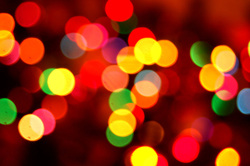 When decorating with lights this holiday season, it is important to stay safe. "U.S. fire departments respond to an average of 230 home fires annually that start with Christmas trees, resulting in an average of six deaths, 22 injuries and $18.3 million in property damage, according to the National Fire Protection Association. About 5,800 people annually also are treated in hospital emergency rooms for falls associated with holiday decorations, with more than half of them coming from ladders or roofs while decorating outdoors, the fire association said." Most holiday decoration related injuries can be easily prevented. Southern California Edison has put together a list of tips to help you and your family stay safe this season.
To read the full article, follow this link: http://newsroom.edison.com/releases/give-the-gift-of-safety-during-the-holidays |
Categories
All
Archives
April 2020
|
|
Copyright © 2024. Griff's Electric, Inc.
|

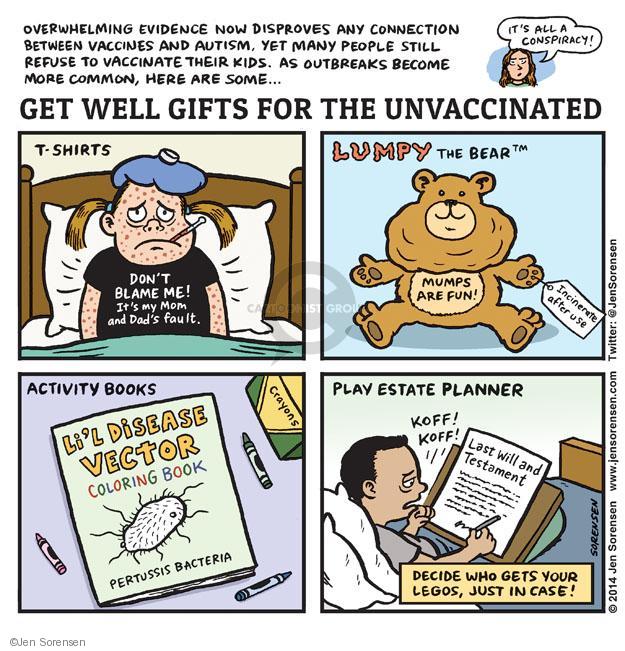
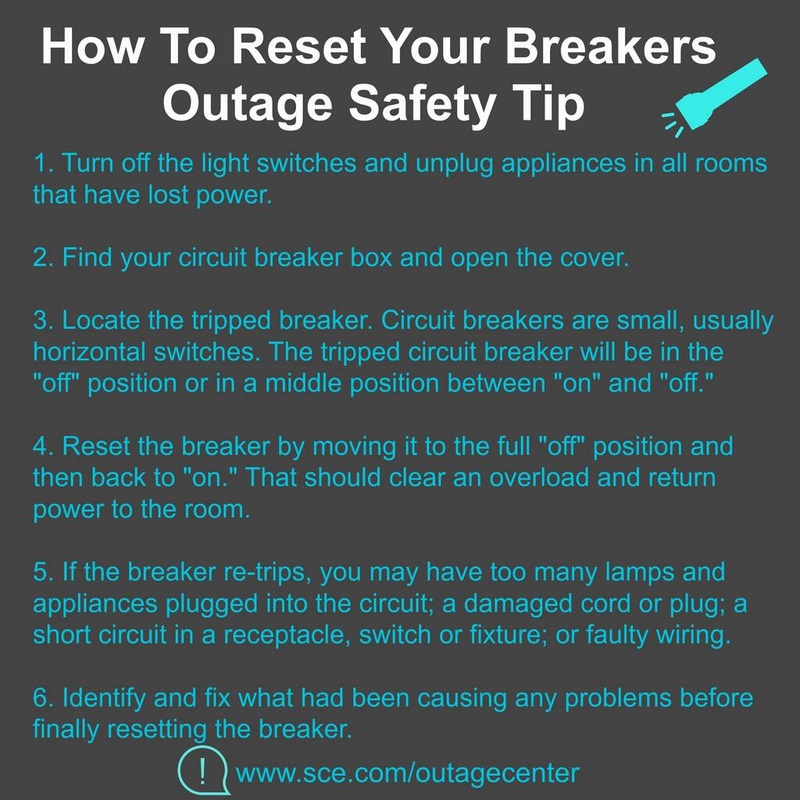
 RSS Feed
RSS Feed